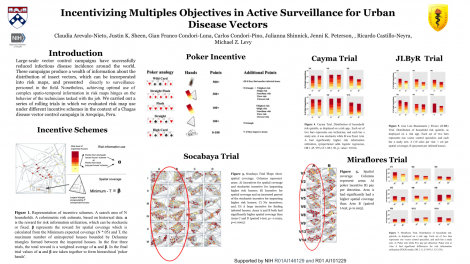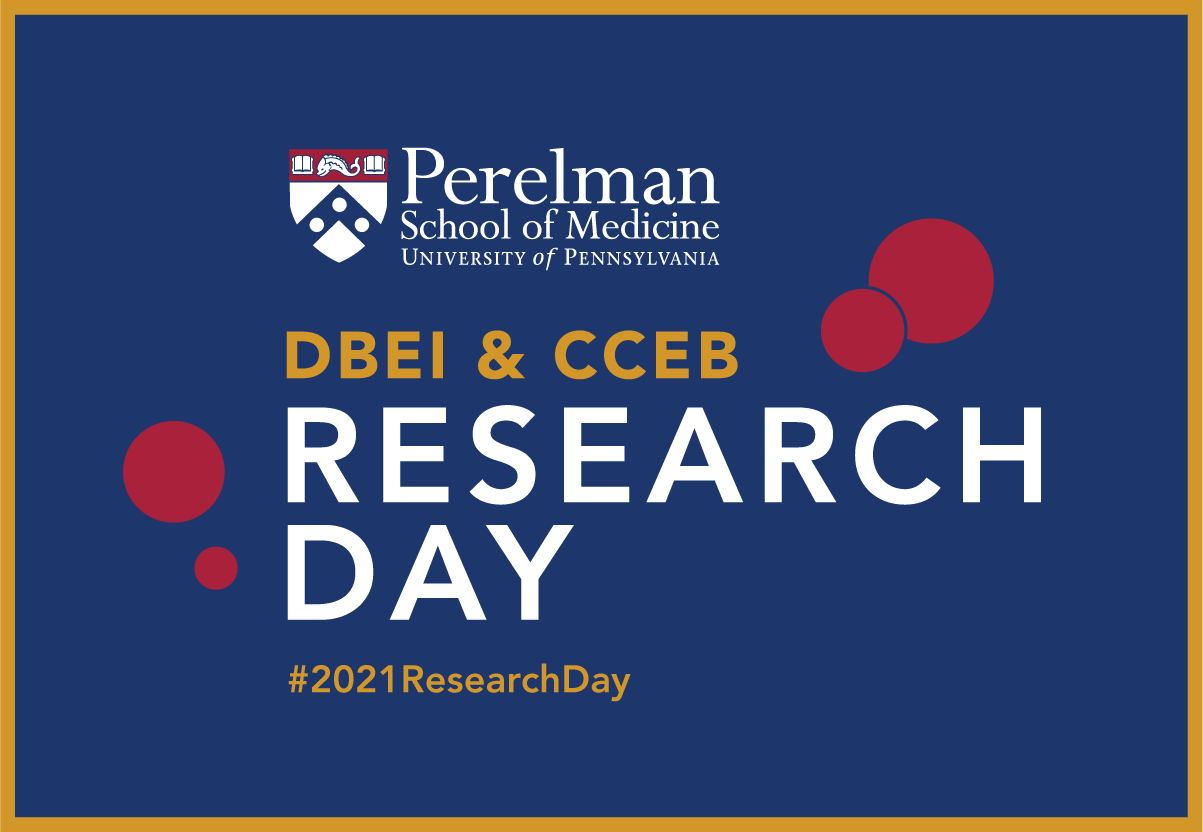Claudia Arevalo-Nieto
Incentivizing Multiple Objectives in Active Surveillance for Urban Disease Vectors, an Innovative Approach.

Presenter

I am a Ph.D. student in Epidemiologic Research at Peruvian University Cayetano Heredia, I have an MPH degree, and also I am a researcher interested in Vector and Infectious disease epidemiology and new ways to improve their surveillance.
I work in Chagas Project in Arequipa-Peru in Mike Levy's group since 2008.
Abstract
Large-scale vector control campaigns have successfully reduced infectious disease incidence around the world. In addition to preventing new infections, these campaigns produce a wealth of information about the distribution and density of insect vectors, which can be incorporated into risk maps. These maps can effectively communicate risk map data to technicians on the ground, although encouraging them to use the data remains a challenge. We carried out a series of rolling trials in which we evaluated risk map use under different incentive schemes. Participants in the studies were trained field technicians tasked with house-to-house surveillance for insect vectors of Chagas disease in Arequipa, Peru. A novel incentive scheme based on poker best achieved a dual objective: to encourage technicians to preferentially visit higher-risk houses while surveilling evenly across the search zone. The poker incentive structure may be well-suited to improve entomological surveillance activities and other complex multi-objective tasks.
Keywords
Epidemiologic surveillance, risk maps, vector control, spatial search, Chagas disease, Triatoma infestans, behavioral incentivesCommenting is now closed.
About Us
To understand health and disease today, we need new thinking and novel science —the kind we create when multiple disciplines work together from the ground up. That is why this department has put forward a bold vision in population-health science: a single academic home for biostatistics, epidemiology and informatics.
© 2023 Trustees of the University of Pennsylvania. All rights reserved.. | Disclaimer

